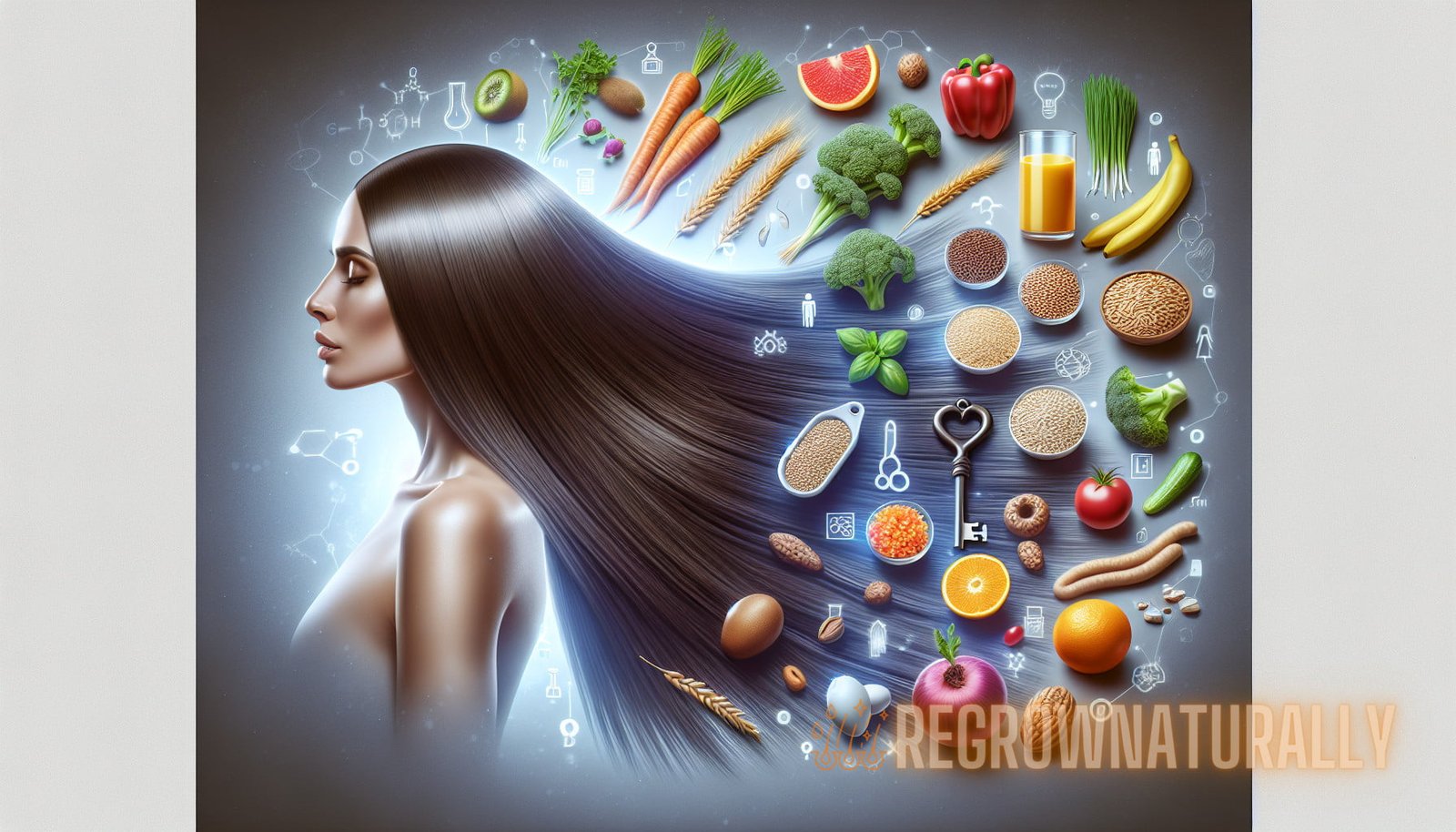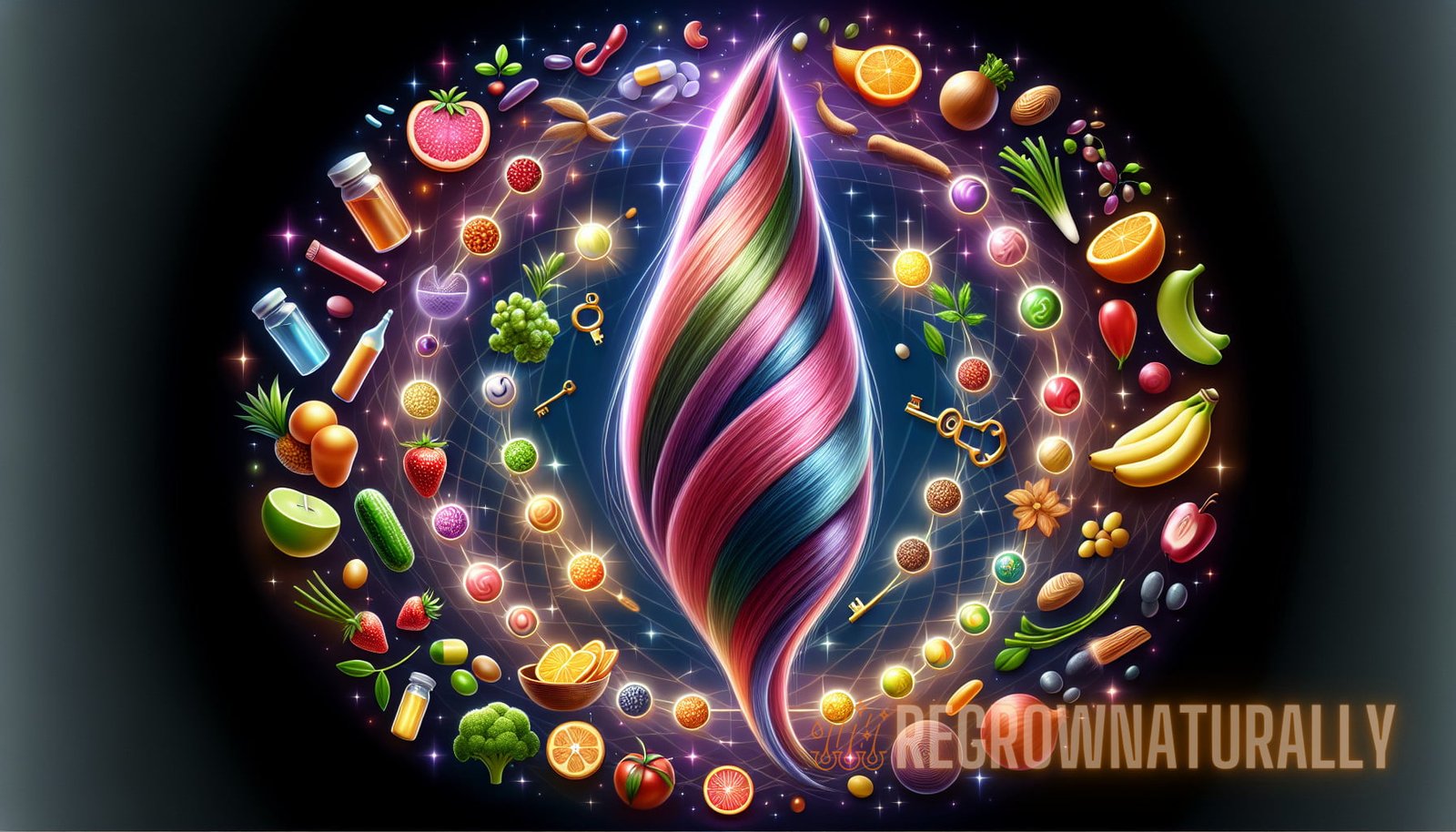Introduction
Hair loss is a common problem that affects millions of people around the world. Whether caused by genetics, hormonal imbalances, stress, or other factors, losing hair can significantly impact an individual’s self-esteem and overall well-being. However, the good news is that there are several nutritional factors that play a vital role in promoting astonishing hair growth and achieving hair revival. In this article, we will decode the intricate balance of these nutritional factors and explore their importance in supporting healthy and vibrant hair.
The Role of Nutrition in Hair Growth
Nutrition plays a critical role in maintaining overall health, and this extends to the health of our hair as well. Our hair follicles require a constant supply of essential nutrients to grow and thrive. Here are some of the key nutritional factors that contribute to hair growth:
- Vitamins and Minerals: Various vitamins and minerals are essential for healthy hair growth, including:
- Vitamin A: This vitamin helps in the production of sebum, which keeps the scalp moisturized and promotes hair growth. Good sources of vitamin A include carrots, spinach, and sweet potatoes.
- Vitamin E: Vitamin E is an antioxidant that improves blood circulation to the scalp, promoting hair growth. Nuts, spinach, and avocados are excellent sources of vitamin E.
- Vitamin C: Vitamin C aids in collagen production, which is essential for strong hair growth. Citrus fruits, strawberries, and bell peppers are rich in vitamin C.
- Vitamin D: Vitamin D stimulates hair follicles and promotes hair growth. The best source of vitamin D is sunlight, but it can also be obtained from fatty fish, fortified dairy products, and eggs.
- Iron: Iron deficiency is a common cause of hair loss. Including iron-rich foods such as lean meats, beans, and leafy greens in your diet can help support hair growth.
- Zinc: Zinc helps to regulate oil glands around the hair follicles, preventing hair loss and promoting hair growth. Oysters, legumes, and pumpkin seeds are good sources of zinc.
- Protein: Protein is the building block of our hair. Including an adequate amount of protein in our diet helps in the production of keratin, the protein that makes up our hair. Good sources of protein include lean meats, eggs, dairy products, and legumes.
- Omega-3 Fatty Acids: Omega-3 fatty acids are essential fats that promote hair growth and maintain scalp health. Fatty fish, flaxseeds, and walnuts are excellent sources of omega-3 fatty acids.
- Biotin: Biotin, also known as vitamin B7, is crucial for hair growth. It helps in the production of keratin and improves the elasticity of the hair cortex. Foods rich in biotin include eggs, nuts, and seeds.
- Antioxidants: Antioxidants protect our hair follicles from oxidative stress and damage caused by free radicals. Including foods rich in antioxidants, such as berries, green tea, and dark chocolate, can help promote hair growth.
The Impact of Diet on Hair Growth
Your overall diet and eating habits greatly influence the health of your hair. Poor nutrition and deficiencies in specific nutrients can lead to hair loss, thinning, and dullness. On the other hand, a well-balanced diet that includes a variety of nutrient-rich foods can help nourish your hair follicles and promote hair revival. Here are some dietary factors that can impact hair growth:
- Eating a Balanced Diet: Including a variety of fruits, vegetables, whole grains, lean proteins, and healthy fats in your diet provides your body with the essential nutrients it needs for healthy hair growth.
- Controlling Caloric Intake: Both excessive calorie intake and severe calorie restriction can lead to hair loss. Maintaining a healthy weight and consuming an appropriate number of calories for your activity level is important for promoting hair growth.
- Managing Nutritional Deficiencies: Deficiencies in certain nutrients, such as iron, biotin, and vitamin D, can contribute to hair loss. If you suspect a deficiency, it is advisable to consult with a healthcare professional who can recommend appropriate supplements or dietary changes.
- Hydrating Properly: Staying hydrated is essential for overall health, including the health of your hair. Drinking an adequate amount of water helps to keep your hair and scalp hydrated and promotes hair growth.
- Limiting Processed Foods: Processed foods often lack essential nutrients and can contribute to inflammation and oxidative stress, which negatively affect hair growth. Opting for whole, unprocessed foods is beneficial for both your hair and overall health.
A well-planned diet that incorporates these dietary factors and avoids detrimental habits can greatly enhance hair growth and promote hair revival.
The Importance of Hygiene and Hair Care Practices

While nutrition is key for healthy hair growth, it is essential to maintain proper hygiene and follow good hair care practices to ensure optimal results. Here are some important factors to consider:
- Regular Washing: Keeping your scalp clean and free from excess oil, dirt, and product buildup is crucial for healthy hair growth. However, excessive washing can strip the scalp of natural oils, leading to dryness and potential hair breakage. Find a balance and aim to wash your hair regularly but not excessively.
- Gentle Handling: Avoid harsh hair treatments, including excessive heat styling, chemical treatments, and aggressive brushing. Opt for gentle hair care practices, such as using wide-toothed combs, heat protectants, and choosing hairstyles that don’t put stress on your hair follicles.
- Scalp Massage: Massaging your scalp regularly stimulates blood flow to the hair follicles and promotes hair growth. Use gentle circular motions and consider incorporating essential oils, such as lavender or rosemary, for added benefits.
- Protective Styling: If you enjoy styling your hair, consider protective hairstyles that minimize damage caused by tight hairstyles, excessive pulling, or constant friction. Avoid hairstyles that put strain on your hair, such as tight ponytails or braids.
- Trimming Split Ends: Regularly trimming split ends helps to prevent breakage and promote healthier hair growth. Aim to schedule regular trims every 8-12 weeks, or as recommended by your hairstylist.
Medical Conditions and Hair Growth
In some cases, hair loss may be a result of underlying medical conditions. Medical conditions that can contribute to hair loss include:
- Androgenetic Alopecia: Androgenetic alopecia, or male/female pattern baldness, is the most common cause of hair loss. It is primarily caused by genetics and hormonal factors.
- Alopecia Areata: Alopecia areata is an autoimmune condition that causes patchy hair loss. It occurs when the immune system mistakenly attacks hair follicles.
- Hormonal Imbalances: Hormonal imbalances, such as those associated with thyroid disorders or polycystic ovary syndrome (PCOS), can lead to hair loss.
- Medical Treatments: Certain medical treatments, such as chemotherapy or radiation therapy, can cause temporary hair loss. However, hair often regrows once the treatment is complete.
- Stress and Emotional Factors: Mental health conditions, chronic stress, and emotional factors can contribute to hair loss. Addressing the underlying causes and incorporating stress-reducing practices can help promote hair revival.
If you suspect an underlying medical condition is causing your hair loss, it is crucial to consult with a medical professional for an accurate diagnosis and appropriate treatment.
Conclusion
Nutritional factors play a vital role in promoting astonishing hair growth and achieving hair revival. By incorporating a balanced diet rich in essential vitamins, minerals, protein, and healthy fats, you can nourish your hair follicles and support healthy hair growth. Additionally, maintaining proper hygiene, following gentle hair care practices, and addressing any underlying medical conditions are crucial steps in promoting optimal hair growth. Remember, healthy and vibrant hair often starts from within, and the right nutrition can make a significant difference.
For more in-depth information on the role of nutrition in promoting hair growth, refer to the article on hair nutrition available at regrownaturally.fun.
To learn about the revolutionary technologies for hair transformation success, check out the article on revolutionary hair technologies available at regrownaturally.fun.
For further information on hair growth and related topics, you can visit the Wikipedia page on hair loss.



